Old Japanese soldiers regret war crimes
Updated: 2014-09-01 07:04
By Xinhua in Shenyang(China Daily USA)
|
|||||||||
They had the blood of Chinese people on their hands during World War II but, after years of imprisonment in the country they invaded, many Japanese war criminals' attitudes have changed.
Before the 69th anniversary of the Japanese surrender on Aug 15, Xinhua interviewed eight Japanese veterans, who reflected on the atrocities they committed during the war and called for peace.
The interviews are being released ahead of the anniversary of China's victory in its War of Resistance against Japanese Aggression, which falls on Wednesday.
China designated Victory Day this year to commemorate the hardship and struggles of the Chinese people during the war and to demonstrate the country's will to safeguard peace and oppose aggression.
Naniwa Yasunao, who was 24 in 1945, remembers seeing bodies of Chinese soldiers and civilians washed down the Yangtze River.
"More than 600 Japanese soldiers invaded several villages in a valley, where the battalion chief told us to take everything and kill everyone, sparing not even a cat," he said.
The Japanese forced the elderly, women and children into a house, before locking the door and setting fire to the building.
"It was December," Yasunao said. "We could see the blaze and black smoke from the other side of the mountain and hear the dreadful screams of the people."
Okawara Koichi, 92, has compiled a book of his confessions. He has also been talking to housewives so that they can tell their children what really happened seven decades ago.
During the interviews, many of the veterans said it was not right for the Japanese government to distort history.
"Japan is doomed if it doesn't tell its citizens what really happened," said Nishio Kokki.
Takahashi Tetsuro, chief of a Japanese veterans' organization that has been calling for truth since 1956, said: "Many Japanese people are not aware of what happened. They know nothing about the Japanese invasion, which Shinzo Abe has even denied. This is not the right attitude at all."
Inaha Seki said: "The Yasukuni Shrine is used to worship war criminals. Our politicians need history education as badly as the youngsters do."
Yasunao said: "I haven't got many years to live. But as long as I can, I would like to tell our descendants, generation after generation, that Japan and China must consult with and understand each other, holding hands and progressing together."
Ehato Hatasu, who was born in 1913, was a corporal during the war in China. The former middle school teacher told Xinhua about a time the Japanese found themselves short of food in Suoge, a village in Shandong province, so they killed a woman to eat her.
"She was a prisoner," he said. "An officer forced her to become a comfort woman ... The one who killed her admitted to this event."
Hatasu once ordered some new soldiers to kill a teenager.
"He clutched my leg and cried, saying that his mom was waiting for him to go home," he said. "I had parents myself, but if I disobeyed the order of my superior, I would lose my life. So I could not let him go."
(China Daily USA 09/01/2014 page5)
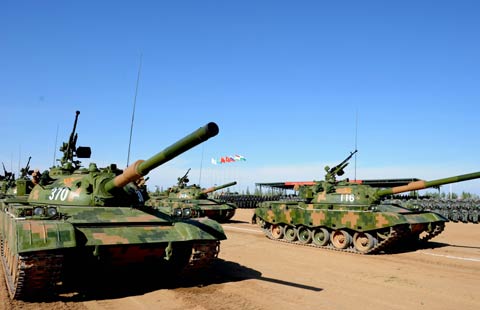
 Peace Mission - 2014 military drill ends in China's Inner Mongolia
Peace Mission - 2014 military drill ends in China's Inner Mongolia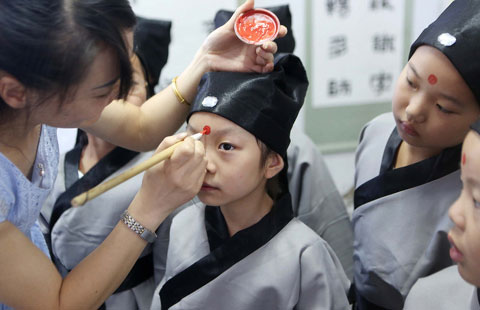
 First steps on a journey of discovery
First steps on a journey of discovery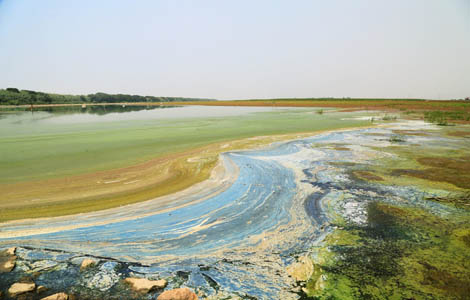
 Garbage dump turns water into poison
Garbage dump turns water into poison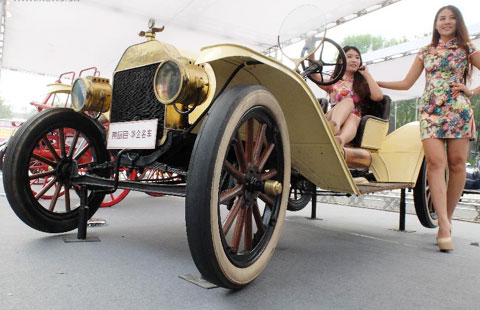
 Vintage cars exhibition opens in Jinan
Vintage cars exhibition opens in Jinan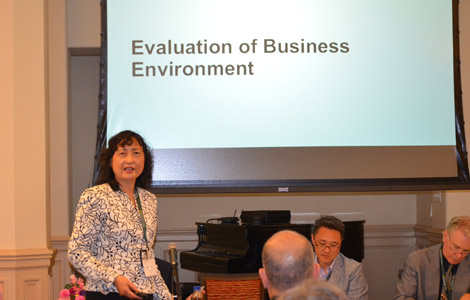
 Discussion on Chinese FDI
Discussion on Chinese FDI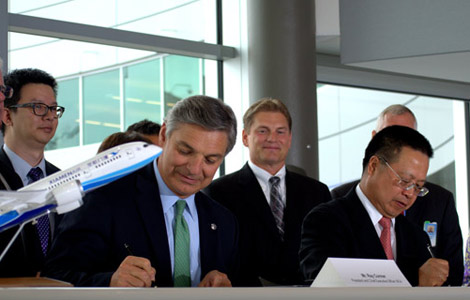
 Boeing, Xiamen Airlines celebrate 787 Dreamliner delivery
Boeing, Xiamen Airlines celebrate 787 Dreamliner delivery
 US photographer captures amazing starry night
US photographer captures amazing starry night
 More earthquake relief rolls in
More earthquake relief rolls in
Most Viewed
Editor's Picks

|

|

|

|

|

|
Today's Top News
Chinese American to run NYC public schools' fund
US launches fresh air strikes on IS rebels
NPC decision a landmark in HK democratic development
Chui Sai On elected Macao chief executive-designate
Exhibition on China-US WWII collaboration unveiled
Google building delivery drones
US, China plan followup to Sunnylands summit
US urged to stop recon
US Weekly

|

|








